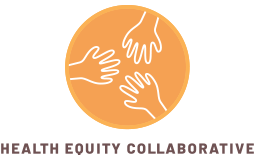02 Jun LGBTQ+ Health Disparities: What We Can Do to Close the Gap
June is Pride Month, a time to celebrate the LGBTQ+ community and its many achievements. It is also a time to reflect on the challenges that the LGBTQ+ community faces, including disparities in health care.
LGBTQ+ people are more likely to experience health disparities than cisgender and heterosexual people. These disparities can be due to a number of factors, including discrimination, stigma, and lack of access to care.
One of the most significant health disparities faced by the LGBTQ+ community is the higher rate of HIV infection. According to the Centers for Disease Control and Prevention (CDC), gay and bisexual men are 20 times more likely to be diagnosed with HIV than heterosexual men. In a guest blog written for the Health Equity Collaborative last month, Scott Bertani at Health HIV emphasized the importance of vaccine innovation in the fight against the HIV epidemic.
Other health disparities faced by the LGBTQ+ community include:
- Cancer: LGBTQ+ people are more likely to be diagnosed with certain types of cancer, such as cervical cancer, anal cancer, and breast cancer.
- Heart disease: LGBTQ+ people are more likely to have heart disease than cisgender and heterosexual people.
- Mental health: LGBTQ+ people are more likely to experience mental health problems, such as depression, anxiety, and suicidal thoughts.
- Substance abuse: LGBTQ+ people are more likely to use alcohol and drugs than cisgender and heterosexual people.
- Access to care: LGBTQ+ people are more likely to report facing discrimination when trying to access health care.
While we celebrate the progress that has been made, there are still a number of things that can be done to address health disparities and fight against discrimination and intolerance. These include:
- Increase awareness of LGBTQ+ health issues: Many people are not aware of the health disparities that LGBTQ+ people face. Increasing awareness of these issues can help to reduce stigma and discrimination, and it can also help people to seek the care they need.
- Train healthcare providers: Healthcare providers need to be trained to provide culturally competent care to LGBTQ+ patients. This training should include information on the specific health needs of LGBTQ+ people, as well as how to address the challenges that LGBTQ+ people may face when trying to access care.
- Support LGBTQ+-focused organizations: Organizations across the country are dedicated to improving the health and wellness of the LGBTQ+ community. Supporting these organizations can help to ensure that LGBTQ+ people have access to the resources and support they need.
- Advocate for LGBTQ+ rights: LGBTQ+ people face a variety of legal and social challenges that can impact their health. Advocating for LGBTQ+ rights can help to create a more supportive environment for LGBTQ+ people, which can lead to improved health outcomes.
Earlier this year, the Health Equity Collaborative sent a letter to the 118th Congress and President Biden advocating for common sense priorities to advance health equity for underserved communities including the LGBTQ+ population. Several leading LGBTQ+ organizations joined the effort. These include:
- Black, Gifted & Whole
- Center for Black Equity
- GLMA: Health Professionals Advancing LGBTQ+ Equality
- Health HIV
- National Coalition for LGBTQ Health
- NGLCC
We encourage you to follow the respective links and check out some of the amazing work these groups are doing to improve LGBTQ+ health.
By working together, we can create a more equitable society where all LGBTQ+ people have the opportunity to live healthy lives.


